For Thanksgiving and the day after, Black Friday, World Vision U.S. president Rich Stearns reflects on his recent trip to Bangladesh.
He shared his Thanksgiving meal with Dipshikha, who teaches the children of brothel workers at a World Vision Child-Friendly Space in Bangladesh. Rich also met Reshma, who will be bought and sold a dozen times on Black Friday as a sex worker.
* * *
Thanksgiving
After rearing a house full of children, Reneé and I are empty nesters. Sometimes I wander into my children’s quiet bedrooms just so that I can miss them. But on Thanksgiving, our house will be alive with children and grandchildren. There will be noise, laughter, some squealing and maybe a few meltdowns, all leading up to Thanksgiving dinner.
Thanksgiving at the Stearns house is both vegan, for my daughter Sarah and her family, and carnivorous, for the rest of us. Reneé sets the table with a reminder of my former life as CEO of Lenox — the china we have collected over the years. She makes the turkey and, since 2005, a delicious dish called amaretto sweet potatoes, courtesy of World Vision videographer Tom Costanza.
Thanksgiving is simply wonderful.
But this year, as I preside over a family so fortunate, I know I will be thinking of a different dinner that Reneé and I are thankful for — one that took place a few weeks ago at Dipshikha’s home in Jessore, Bangladesh.
Reneé and I were in Bangladesh to see World Vision’s child protection work. Staff, who reminded us of angels, teach the children of sex workers — boys and girls who live in the brothels with their mothers, who would have no chance at education if not for World Vision’s Child-Friendly Spaces.
We visited one Child-Friendly Space on an island made of mud. It was hellish. But World Vision provided a bright spot amid the desolation. Dozens of children of sex workers filled a brightly decorated room capped with a sturdy tin roof where they are taught the alphabet, math, songs, and how to draw by former sex workers who now can call themselves teachers.
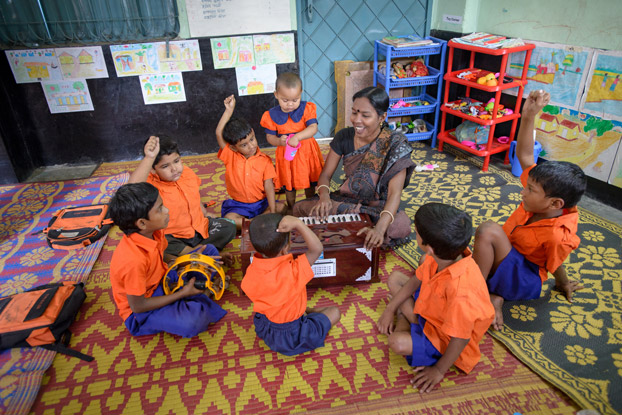
Five days a week, Dipshikha Roy teaches the children of sex workers at the Hat Khola brothel — 18 squirrely, noisy boys and girls who love the daily respite from life across the street in the brothel.
After a visit to a Child-Friendly Space, we went to dinner at Dipshikha’s house. Dipshikha, a young widow, lives with her mother and father-in-law and her beautiful daughter, Chitra.
The family lives simply on Dipshikha’s basic salary. In fact, Dipshikha does not have a table, so Reneé and I sat on her bed to eat our dinner.
The food kept coming. No turkey of course, but curry, rice, and cucumbers and carrots cut beautifully into shapes that would have fit right in at the Waldorf Astoria.
The neighbors came to watch us eating on Dipshikha’s bed. When Dipshikha lamented that she had no table, Reneé told her that this is how we eat with big groups in the United States. We always put our plates on our laps.
Dipshikha’s daughter, Chitra, presented me with a beautiful gift — a pencil drawing she’d made of Jesus on the cross, surrounded by cut flowers. “ I saw his picture on the Internet,” she says. What a precious gift from a precious girl.
Reneé and I will remember the feast at Dipshikha’s home as we welcome our family for Thanksgiving. Because of World Vision, our family is much bigger than five children, their spouses, and three grandchildren. Our family includes more than 45,000 World Vision staff and the million people with whom we partner around the world.
It is the same for all of you. You are part of my family as well. Joined together, our families cover nearly 100 countries around the world. I am thankful every day for each of you. World Vision’s most valuable commodity is people — our staff and our supporters. Without you, there is no us. Without you, we cannot reach out and touch the poor. We cannot live out Jesus’ commandment to love our neighbors as ourselves.
This Thanksgiving, whether you are sitting at a table, balancing a plate on your knees in the living room, or even sitting on a bed, let’s give thanks for one another and for women like Dipshikha.
They are the servants of God who connect us with those whom Jesus loved the most.
Black Friday
I love the day after Thanksgiving — for me, it marks the beginning of the Christmas season and a reminder of the coming of our Savior. Of course, we also know this day as Black Friday, representing the start of a mad rush of buying and selling. I think most of us are disturbed on some level by the commercialization of Christmas. But after getting back from Bangladesh, I can’t help but think of something much worse: the commercialization of human beings.
Earlier this month, my wife Reneé and I met Reshma*, who will be bought and sold a dozen times on Black Friday. Reshma is a sex worker in Jessore, Bangladesh. In her 30s now, she came to the brothel on Hat Khola street (meaning ‘marketplace’ in Bengali) when she was only 10. For 25 years, she has been paid to have sex all day, every day.
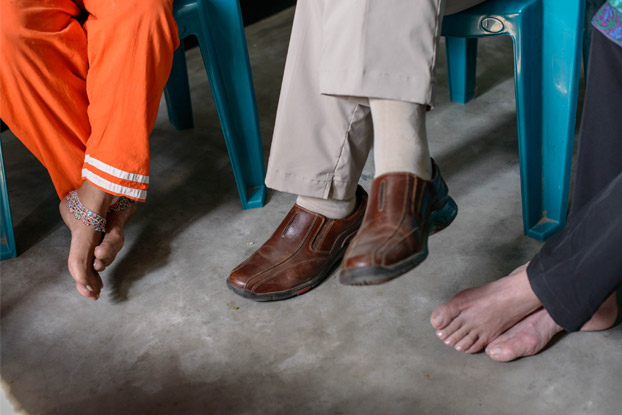
“I loved a boy who brought me here,” Reshma told Reneé and me. The boy, Mustafa, left Reshma at the brothel. After she was initiated into the trade by greedy madams who prey on young girls, she couldn’t go home. Her mother had died of a stroke and she was ashamed to go back to her father.
Since Reshma is aging, she doesn’t make as much money as the younger sex workers at the brothel. She earns $2.50 per sex act while the younger girls command $6.50. Reshma is paying off a debt she owes to the brothel — 60,000 Taka, about $800, money she borrowed for three surgeries, including appendicitis and kidney stones. She tries to save $10 a week to put toward the debt. She will be paying off this loan for many years.
Reshma’s life is full of darkness.
Two bright spots in Reshma’s life are her daughters: Sonali, which means golden, and Rupali, which means silver. The beautiful little girls are 7 and 3. Sonali is aptly named. She has a golden countenance. The little girl seems to glimmer with life and hope.
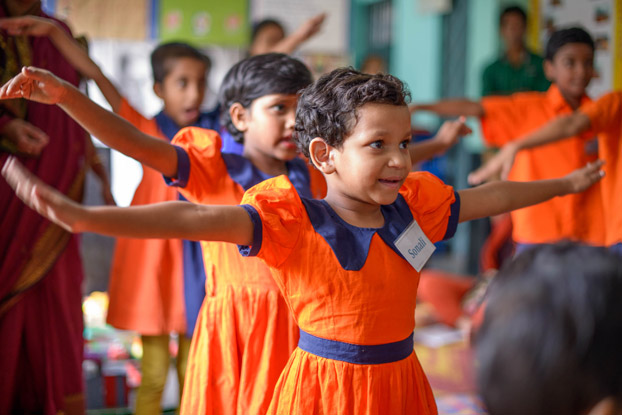
Sonali attends World Vision’s Child-Friendly Space across the street from the brothel where her mother works. She is at the top of her class, and Reshma is hoping to see her pride and joy go into a formal school setting. Reshma has hopes and dreams for herself as well. She would like to open a little market, a small grocery store that she can keep neat and tidy, stocked full of things that people would like to buy — rice, soap, even sweets for children. Not exactly Black Friday fare, but somehow, much more meaningful than the latest iPhone.
Reshma is tired of this life. She told us: “When I lie down on the pillow I think, ‘I lost my mom. Now I have children myself. What will I do to care for them?‘”
In this season of Thanksgiving, amid the revelry and the preparation for Christmas, I hope that each of us will think about women like Reshma who are bought and sold every day. Consider how World Vision works in Bangladesh and other countries to ensure that their children, like Sonali and Rupali, do not follow in their mothers’ footsteps.
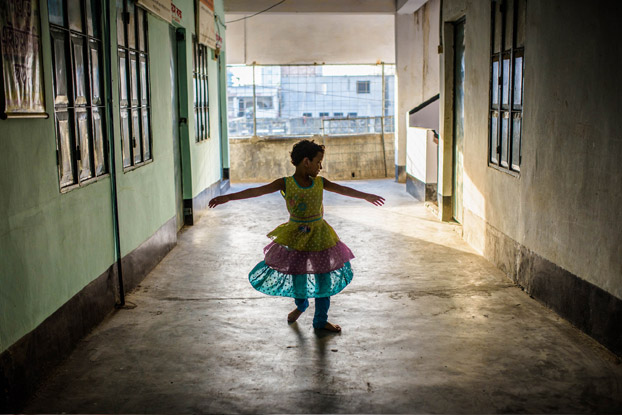
I urge you to say a Black Friday prayer for the countless women and children whom Reshma represents, that our Almighty God will deliver them from despair and set them upon a new path to experience life in all its fullness.
Our prayers have such power. There’s no better gift.
*Name changed for protection.
Join us in prayer today for mothers like Reshma, and help bring hope into the life of a child like Sonali and Rupali: sponsor a child in Bangladesh.
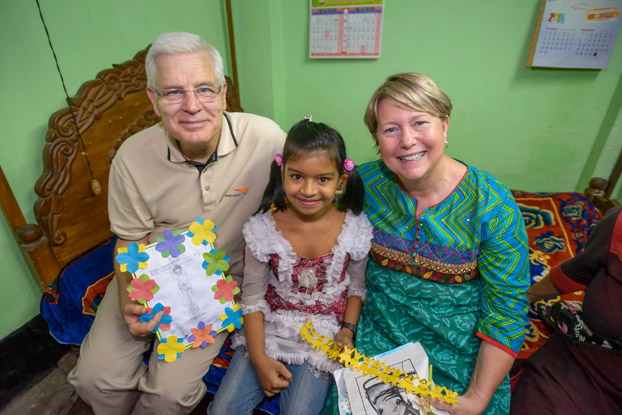
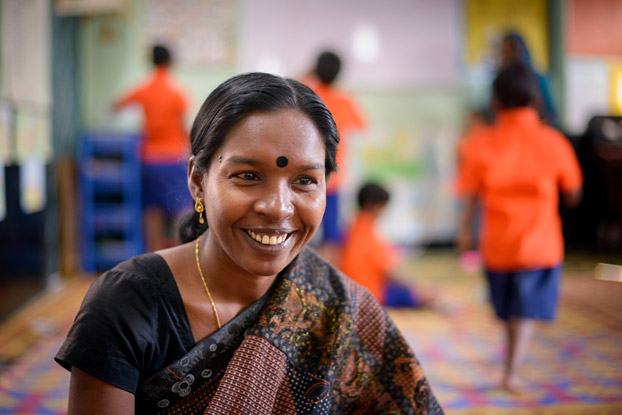
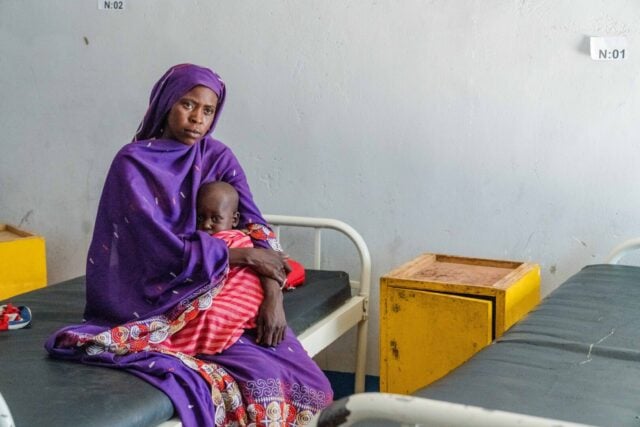


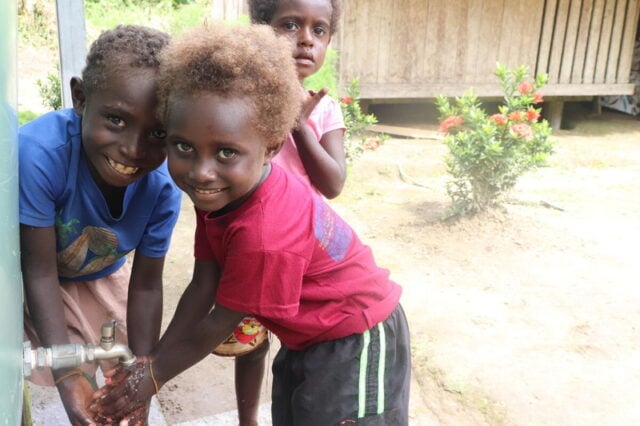
Comments